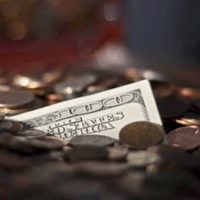Coronavirus & Your Debt

The recent explosion of the novel coronavirus, called COVID-19, has completely upended normal life. From coast to coast, cities and states are issuing orders for bars and restaurants to close. Universities and public schools are shutting down, sending students home for the remainder of the year.
This is a scary time. It is also a difficult time financially for many people. Although Treasury Secretary Steve Mnuchin is claiming that the government will send checks to people, none have arrived yet. There is no firm date, nor clarity about how much people will receive.
If you were struggling financially before the pandemic, chances are you are feeling the pinch particularly hard right now. Many people, including independent contractors, are seeing their incomes drop dramatically.
Can Bankruptcy Help?
Bankruptcy allows debtors to get on top of their debts and ultimately wipe out those that qualify. Generally, consumers choose between two bankruptcies:
- Chapter 7. Taking only a few months to complete, a filer can eliminate most unsecured debt like credit cards, medical debt, and personal loans. There are exceptions. Child support and alimony payments are not eliminated, while student loans can only be discharged in limited circumstances. Also, secured loans (like a car loan or mortgage) will not be eliminated, because the lender can just seize the collateral. Furthermore, the trustee can take any non-exempt property and sell it for the benefit of creditors.
- Chapter 13. A debtor enters a payment plan for 3-5 years and contributes their disposable income to their creditors. At the end of the payment period, unpaid debts are wiped out. A filer loses no property in a Chapter 13, but this is a long bankruptcy. Also, a debtor must have a regular source of income, so the freshly unemployed do not qualify.
If you have few or no assets, then a Chapter 7 can shake off your debt overhang. It is the more popular option of the two bankruptcies. Anyone struggling with credit card debts or medical bills should consider filing, especially if their income collapses during this pandemic.
When to File?
Timing is key. If you become ill with the coronavirus, you might end up in the hospital. Remember, a Chapter 7 can completely eliminate most medical bills quite easily. However, you don’t want to file too soon.
For example, if you file to eliminate credit card debt—but subsequently get sick and rack up medical bills—you will not be able to add the bills to your bankruptcy. All you get rid of is the credit card debt, and you cannot file again for several years. For this reason, you might want to wait until everything shakes out and the virus is under control before deciding when is the best time to file. Of course, everyone’s situation is unique, so meet with an attorney.
Want to Discuss Your Options?
At Nowack & Olson, our Plantation bankruptcy attorneys can assist you as you determine how to tackle crippling debt loads. Please contact us today to schedule a complimentary initial consultation by calling 888-813-4737.
https://www.floridabankruptcynow.com/what-is-the-true-cost-of-filing-for-bankruptcy/
